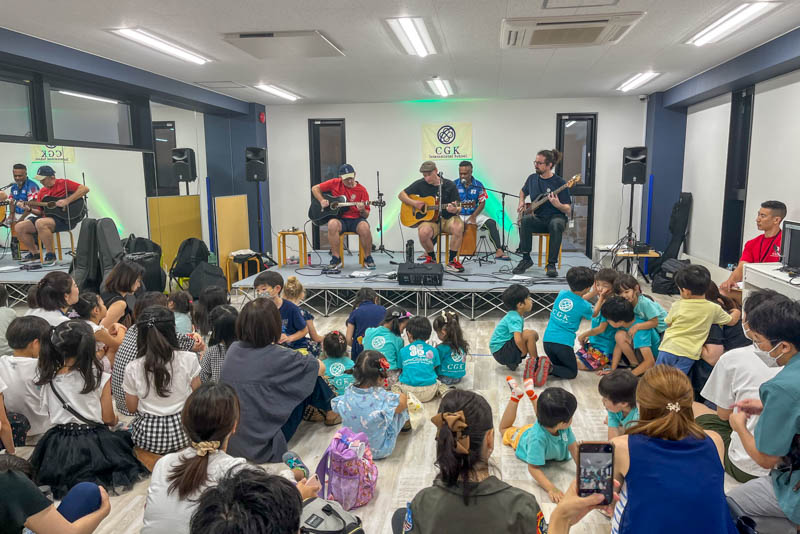Optional Class
We offer extracurricular classes (fees apply) after school from 4:30p.m.
to develop the children's individuality and to meet a wide variety of needs.
Programming (English)
From Age 4 Class - 55-minute class / Every week
The goal is not to learn programming language or to raise programmers, but to develop logical thinking skills through programming. As the children learn naturally and have fun, they develop logical thinking skills as well as English language skills.
For more information, see the article. "Programming Education from Early Childhood and Its Significance".
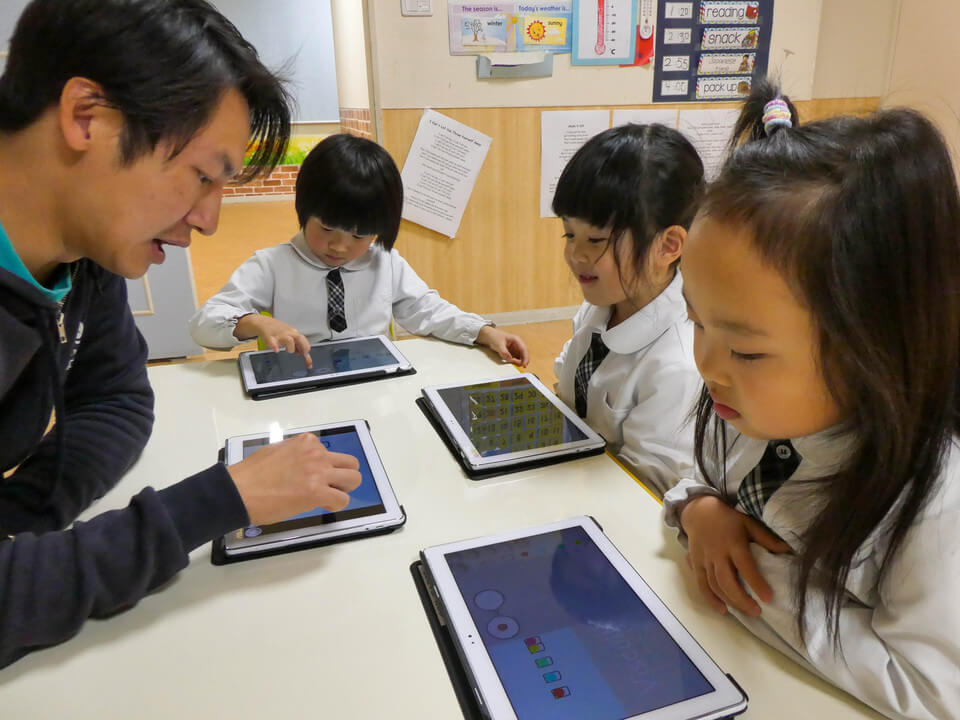

Pygmalion (Japanese)
From Age 2 Class - 50-minute class / 42 times a year
The Pygmalion Early Childhood Education Method has been adopted by Hama Gakuen (Hama Kids), which has the highest number of students accepted into Nada Junior High School, the most difficult junior high school to get into in Japan. Also, it has achieved an average standard deviation score of 60 or higher for its graduates.
At Pygmalion, children learn number concepts (math) through a variety of teaching materials, teaching tools, and fun games that give them a sense of quantity.
During each lesson, the five learning skills are stimulated in a well-balanced way.
- (1) Finger Dexterity: A vital skill that influences all other abilities. It fosters the development of independence.
- (2) Spatial Ability: It cultivates an understanding of space, position, structure, helps to develop a broader perspective and improve decision-making skills.
- (3) Shape Ability: The secret to nurturing thinking and creativity lie within the rich world of shape play.
- (4) Numerical-Logical Ability: It's not just about counting numbers, but also about fostering creativity, feeling quantities visually, and grasping the concept of numbers. Problem-solving abilities are nurtured.
- (5) Language Ability: Develops living language skills not just as written characters but as tools for thought and communication.
Actively thinking, solving, and creating on one's own, leads to the ability to tackle subsequent challenges. Indeed, cultivating this sought-after strength is the education that Pygmalion aims to provide.
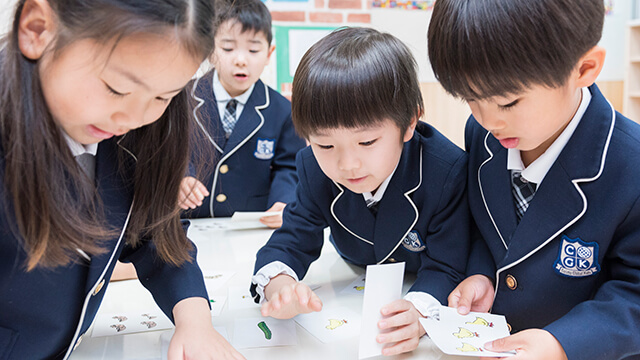
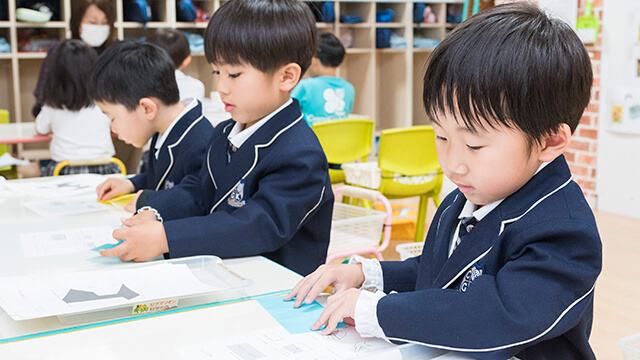
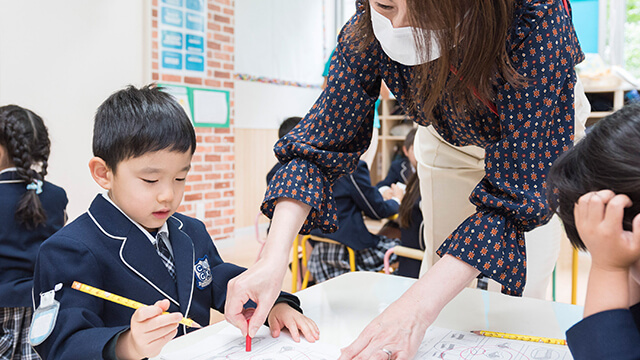
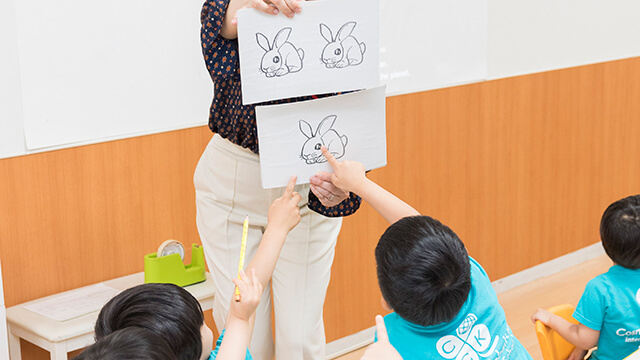
Ronri Engine (Japanese)
From Age 5 Class - 55-minute class / Every week
The Ronri Engine (論理エンジン) nurtures logical thinking through an approach based on the Japanese language. Reading comprehension is necessary for any subject, in any era, and in any profession.
Perceptions:
- The Japanese language is just about having a feel for it, so studying or not studying makes no difference.
- Even without studying, one can score decently in Japanese.
- Japanese language studies are merely about learning kanji and reading aloud.
- The only way I can think of studying Japanese is through reading.
- After all, it's just Japanese, so there's no need to study.
Current State:
- Lack of logical and thinking skills.
- Lack of reading comprehension.
- Lack of vocabulary.
- Lack of expression.
- Lack of awareness of others.
- Unfamiliar with correct grammar.
Can these be ignored?
In the Ronri Engine Japanese course, we ensure mastery by balancing language, logic, thinking, expression, and grammar, adopting a small-step, spiral approach.
With logical reading comprehension, you can objectively interpret word problems.
With logical thinking skills, you can write accurate sentences in descriptive problems and compositions.
With logical expression skills, you can convey your points clearly to others.
There are four pillars to enhance logical reading comprehension and descriptive abilities:
- (1) Equivalence Relationship: A creative combination enhances the persuasiveness of an argument.
- (2) Contrasting Relationship: A stark contrast enhances the impact of an assertion.
- (3) Cause-and-Effect Relationship: The core logic of a new era (showing the relation between cause and result).
- (4) Relationship of Subject, Predicate, and Object: Captures the essence of a sentence.
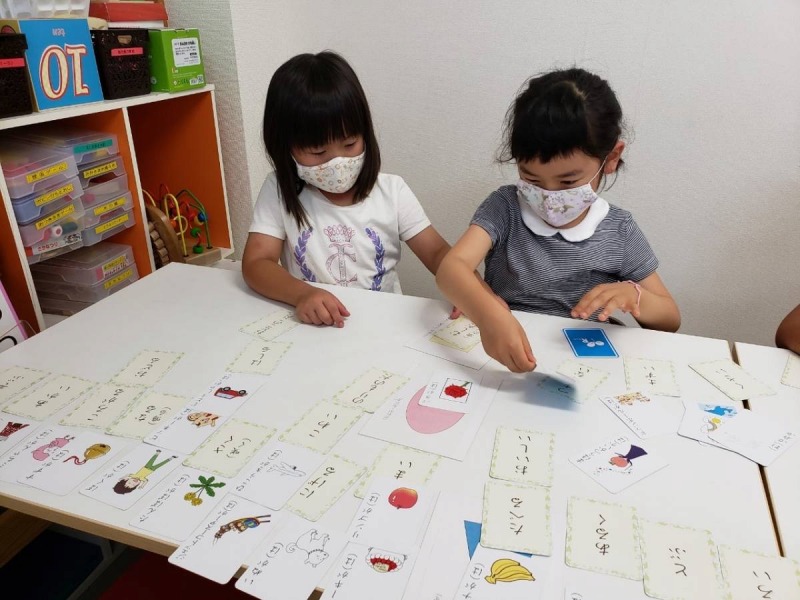
Dance (English)
From Age 3 Class - 45-minute class / Every week
- (1) Promotes physical health and wellness while having fun
- (2) Builds self-confidence
- (3) Improves posture, coordination, and alignment
Our lessons focus on developing and improving physical and mental growth through learning basic dance skills. Most importantly, we want to encourage self-expression through body movement and for the children to enjoy dance.
Dance plays a key role in developing physical health and wellness in young children. Being aware and understanding our bodies improves the connection between the mind and the body. Proper posture, coordination, and alignment are the foundations of all dance movements. Having good body posture and alignment improves coordination and concentration as it trains the body to control movement and develop a sense of rhythm. As well, dance has been shown to build self-confidence by providing a creative and expressive outlet while providing an opportunity to learn something new and fun.
Every three months, we hold a dance show for the children’s families. The dance shows are a fun and positive way for the children to present their progress, they can also enjoy performing in front of an audience and build their self-confidence.
Our goal is to encourage children to develop the ability to express themselves and communicate freely through body movement, along with physical and mental growth. The enjoyment of dance and having fun are also an essential part of these dance lessons.
Students will have the opportunity to perform on stage and showcase themselves in front of an audience with the following events that will take place within the year. These performances are essential for children to have goals and gain special experiences while learning to build confidence and self-expression.
*Please note that the following events are subject to change.
-
CGK School Festival

- Once a year on a weekend
- The School Festival is a fun and engaging event that includes exciting interactive activities, food stalls and performances. This event is open to the public and the outside community. Dance students will be able to show the audience their dance skills and start to gain experience in the joy of performing.
-
Dance Show (Parent Observation)
- Every three months on a weekday
- These dance shows are mainly for parents to observe how their children are doing in the dance lessons but most importantly, to see how much progress they have made throughout the year.
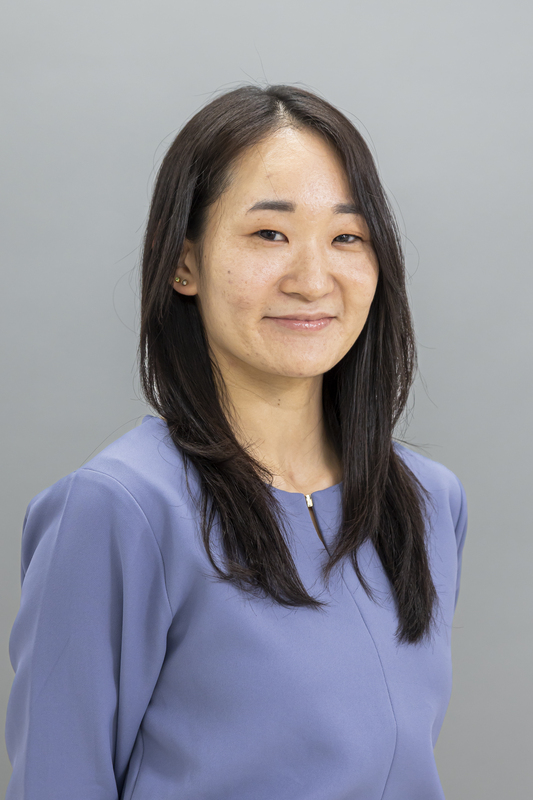
Teacher: Leina
From a young age she has had a passion for dance. She has trained in various dance styles and majored in Contemporary Dance and Ballet at Queensland University of Technology, Australia. In Australia, she has taught dance to a wide range of different age groups. She is a firm believer that dance is a form of art that allows creativity and self-expression.



